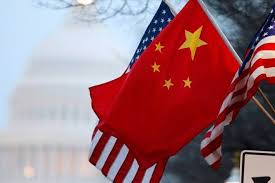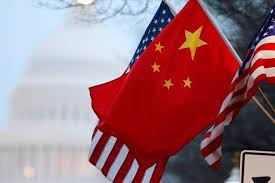
It is not likely that the United States and China would end their trade war and come to an agreement on a trade deal before the November 2020 US presidential election, said Goldman Sachs. The US lender said this prediction was based on the “harder line” on the issue that was being adopted by policy makers from both the countries which are also the two largest economies of the world.
The lender’s comments were in reference to the latest announcement by US president Donald Trump of imposing a fresh 10 per cent tariffs on Chinese goods worth $300 billion which were not in the previous tariff net. That announcement last week of the new tariffs that are set to come into force from September 1 has further aggravated an already acrimonious trade war between the two countries.
The dramatic move by Washington “suggests that both sides in the trade conflict are taking a harder line, reducing the odds of a resolution in the near term,” said Goldman Sachs chief economist Jan Hatzius in a note.
And in response to the dramatic move by Washington on the latest US tariffs, China let the yuan slide on Monday.
Hatzius said the bank expects that the new set of tariffs to remain in place on election day in November.
The trade war and the war of words between China and the United states has resulted in a loss of nearly $2.5 trillion for the global equities since the beginning of the trade war.
The interest rates in the US if also expected to be cut down tow more times this year by the US Federal Reserve according to Hatzius. After the Fed reduced the primary lending rate last week, the lender sees that there is a 75 per cent chance of that happening in September this year and a 50 per cent chance of the interest rate being brought down in October.
Earlier, Hatzius had said that he expected the Fed to cut rates just two time this year. “The Fed has been increasingly responsive this year to trade war threats, bond market expectations, and global growth concerns,” Hatzius added.
While explaining the reason for its prediction of two more rate cuts this year, the bank pointed out to the “growing trade policy risks, market expectations for much deeper rate cuts, and an increase in global risk related to the possibility of a no-deal Brexit”.
(Source:www.thehindubusinessline.com)
The lender’s comments were in reference to the latest announcement by US president Donald Trump of imposing a fresh 10 per cent tariffs on Chinese goods worth $300 billion which were not in the previous tariff net. That announcement last week of the new tariffs that are set to come into force from September 1 has further aggravated an already acrimonious trade war between the two countries.
The dramatic move by Washington “suggests that both sides in the trade conflict are taking a harder line, reducing the odds of a resolution in the near term,” said Goldman Sachs chief economist Jan Hatzius in a note.
And in response to the dramatic move by Washington on the latest US tariffs, China let the yuan slide on Monday.
Hatzius said the bank expects that the new set of tariffs to remain in place on election day in November.
The trade war and the war of words between China and the United states has resulted in a loss of nearly $2.5 trillion for the global equities since the beginning of the trade war.
The interest rates in the US if also expected to be cut down tow more times this year by the US Federal Reserve according to Hatzius. After the Fed reduced the primary lending rate last week, the lender sees that there is a 75 per cent chance of that happening in September this year and a 50 per cent chance of the interest rate being brought down in October.
Earlier, Hatzius had said that he expected the Fed to cut rates just two time this year. “The Fed has been increasingly responsive this year to trade war threats, bond market expectations, and global growth concerns,” Hatzius added.
While explaining the reason for its prediction of two more rate cuts this year, the bank pointed out to the “growing trade policy risks, market expectations for much deeper rate cuts, and an increase in global risk related to the possibility of a no-deal Brexit”.
(Source:www.thehindubusinessline.com)





